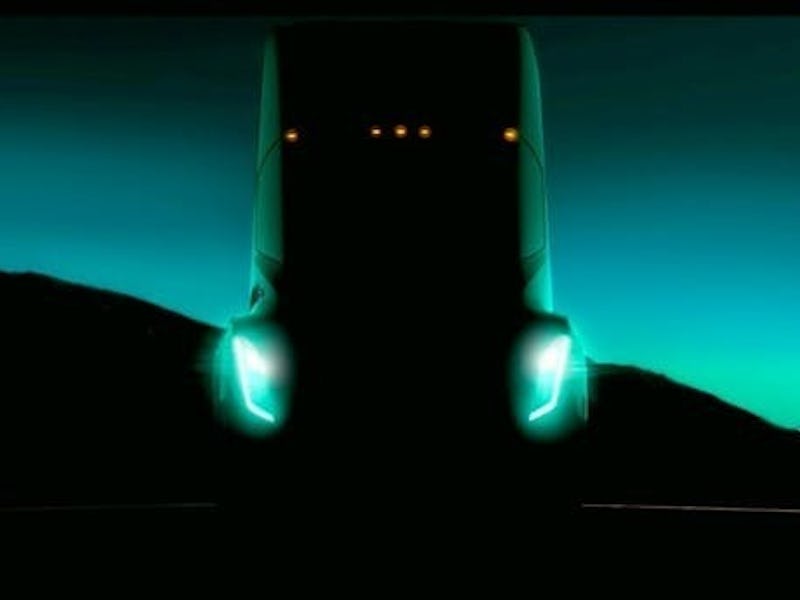Tesla is expected to reveal the first all-electric semi truck in September, and the company is already pushing to make sure it can start testing the vehicle as soon as possible, without a driver on board.
Tesla submitted a letter a week ago to Brian Soublet, head general counsel to the California Department of Motor Vehicles, asking the organization to remove the blanket prohibition on autonomous vehicles that weigh more than 10,000 pounds. The CA DMV recently released a set of updates to its regulations for testing self-driving cars on public roads, which are now in the public comment period. Apple, Tesla, Uber, and others have all weighed in on the new regulations, but Tesla’s comment specifically asks the DMV to allow it to start testing “heavy AVs.”
During a TED talk on Friday, Tesla CEO Elon Musk teased the first image of the Tesla semi and noted that he had driven an early prototype of the truck. But the idea, eventually, is to make Tesla trucks fully autonomous, and transition their drivers into “fleet managers.” In its comment, Tesla said that prohibiting heavy AVs “stifles innovation,” mentioning a case in which a heavy AV could be used to haul parts from one part of a facility to another, but not if its route took it across a single publicly-owned road.
Jessica Gonzalez, a spokesperson for the California DMV, tells Inverse that the DMV was still planning to tackle heavy AVs in a separate rule-making package. Tesla’s comment also recognizes this, but notes that “the Department has not produced a first draft of such rule-making and the blanket prohibition against heavy AVs still exists in the current regulations.”
Gonzalez says the DMV is “focused on completing the regulations for the driverless testing and deployment of [smaller] autonomous vehicles first.”
Tesla maintains that the regulations for AVs under 10,000 pounds should be sufficient to cover heavy AVs too, and that the current prohibition is a “double standard.”
Altogether, a statewide ban on heavy AVs is big inconvenience for Tesla, which is based in the state, but may be forced elsewhere to test. Uber’s self-driving truck startup Otto has already tested its vehicles in several other states, and Musk’s company can certainly do the same. But at the moment, California’s AV regulations are setting a lot of precedent for other states, so it’s in everyone’s best interest to get a substantiative system of rules on paper as soon as possible.
